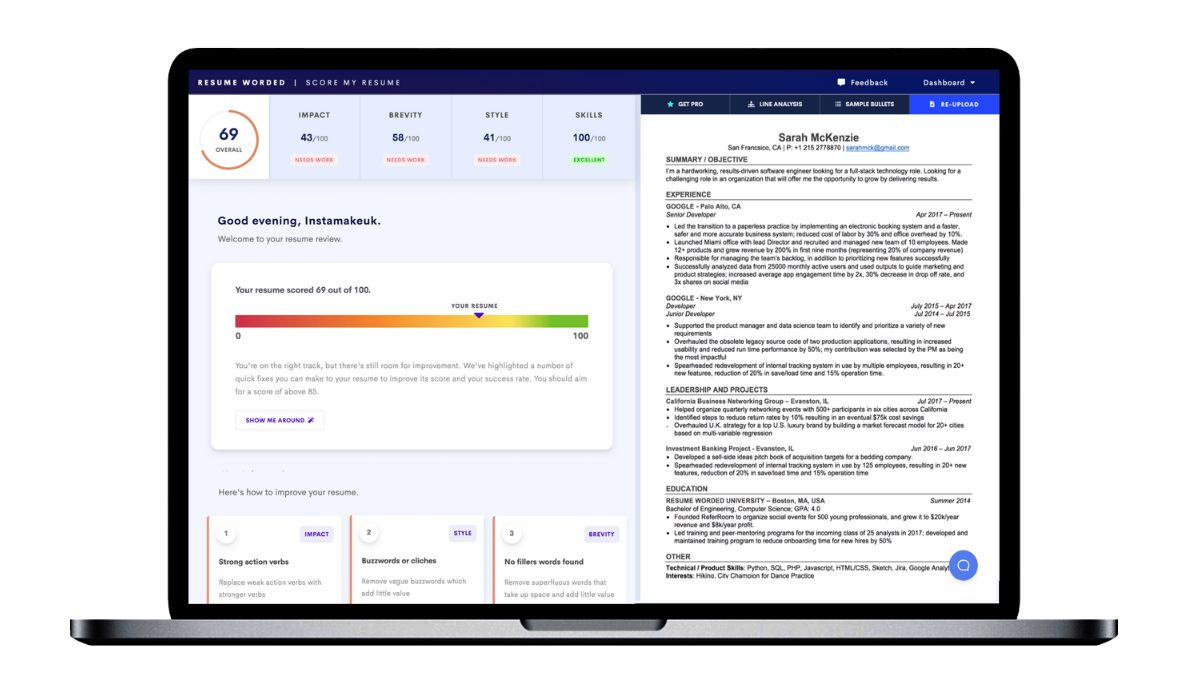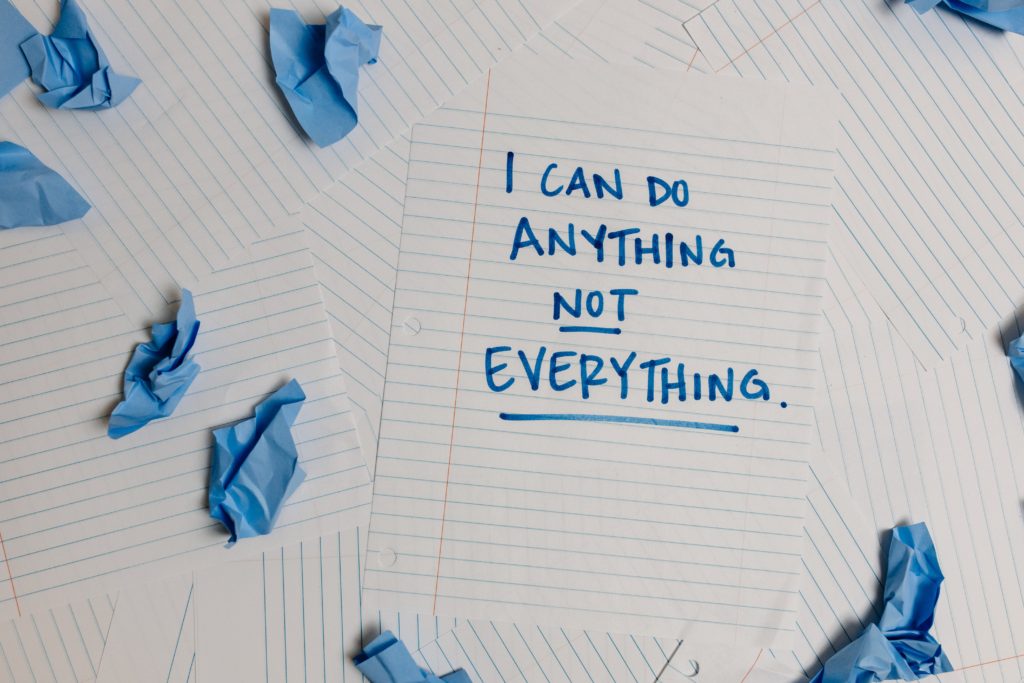Do you find it difficult to make a schedule? Are you one of those people who have a hard time sticking to their schedules? Then you better keep reading!
Creating a schedule is easy yet sticking to it is challenging. Even how fixed your plans are the day you make a schedule, there could still be unexpected things that may happen along the way. It can then result in broken commitments, additional tasks, and not meeting deadlines.
It can be frustrating and disappointing when things you planned did not come out the way you expected. Yet, it is inevitable because there’s nothing sure in this world, Even schedules! However, you can somehow make your schedule as organized and fixed as possible by considering some things.
6 Tips to Make a Schedule and Stick to It
Below are the top 6 tips on how to make a schedule and sticking to it.
1) Know your Priorities
First, to make a schedule, you create a list and organize them according to the level of importance. You can also label the tasks as work and personal. These include fixed events, such as daily routines, scheduled meetings, important events, etc. They are the things that need to be done immediately on the said schedule. Fixed events should not overlap other appointments or plans or even be put off because of unimportant things like watching movies and scrolling through your social media accounts.
These are some examples of events/activities that are considered a priority.
Weekly/monthly meetings
These are the regular meetings at work, school, or organizations. Most often, the date and time of these events are fixed and have a specific schedule.
Sending important emails
These are the emails that are considered urgent and should be taken care of immediately. It can be about the personal or work-related concern that needs your attention.
Returning phone calls
These are the important calls that you missed or need to return for follow-ups. Make sure to give the other person an exact time for your callback to avoid unanswered calls.
Important occasions (ex: anniversary, birthday)
These are the events where your presence is needed, such as company and family events.
You don’t want to miss them, don’t you? You may also want to block your schedule for these celebrations.
An appointment with a client
It’s a meeting with a client to talk about business or work-related agendas. Failure to attend would make a bad impression and can ruin your client’s trust.
Homeworks
These are the assignments that have deadlines. It’s better to set it earlier than the deadline to make sure you finish it on time.
Doctor’s visit
Any medical-related schedule should be a priority. We should always take care of ourselves, and a regular check-up is essential.
2) Be Realistic
Do not plan something unattainable or unsure when you make a schedule. Be realistic in creating your schedule, considering that you can do a task at that specific time, day, and duration. Let’s say you have a meeting at 8 am and the following meeting schedule you set is 9 am, which will happen in another city and would take you an hour to get there. It’s an unrealistic plan. If that’s the case, you would be late for your next meeting.
There are things to consider to make a schedule realistic such as:
Duration
It is the amount of time spent completing something. Example: an hour work-out, 30-minute meeting, half-day celebration, and so on.
Frequency
It is the number of times something is done or repeated, such as daily, weekly, every other day, etc. Make sure there’s no conflict in schedules.
Capacity
It is the ability to finish or complete something in a given period. Ask yourself if you are capable in that given time frame and schedule- mentally, emotionally, and physically.
3) One Thing at a Time
There’s nothing wrong with multitasking. However, if it can drain all your energy, then it’s not a good idea to make a schedule of all things at one time. Studies show that multitasking can decrease your productivity by 40%. I recommend doing one thing at a time for it to succeed. You can’t have two meetings at the same time, especially if they have different agendas.
If you try to do so, there’s a chance that the amount of time that you will spend is prolonged because you don’t know what to finish first, ending up not completing anything at all. Here are some examples of the things that you should not do at the same time or in a very short interval:
Meeting two clients
Discussing two different agendas with two different people or groups can cause confusion and misunderstanding, and most of all, it is unprofessional.
Attending two Special Occasions
Hopping from one event to another would only make you stressed, traveling from one place to another. You would not feel enjoyed at all and your time of stay will be limited.
Driving and responding to texts/emails
Driving a vehicle while replying to text messages and email is a big NO! As the slogans say ‘Do Not Text and Drive’ as it can cause accidents.
Making a presentation while checking your social media accounts
Preparing a report or anything to be presented on a specific day while doing Facebook, Twitter, Instagram, and many more will distract you and prevent you from coming up with a good output.
4) Focus on What is Needed to Do
As mentioned above, you need to know your priorities when you make a schedule, and the least urgent tasks should follow. Whatever you scheduled at that day or time should be your priority and not anything else. Focus on it without letting any distractions come your way. It commonly happens to some people who, despite the hectic schedules, still manage to insert unnecessary activities.
Many distractions can ruin your schedule, such as:
Social Media Platforms
Facebook, Twitter, Instagram, Linked In, etc. Every minute you spend scrolling through your social media accounts is taken from your time, which should have been spent on urgent tasks. Try temporarily disconnecting from the online world to become more productive. Going on digital detox can also help you to make a schedule.
Entertainment
It can be the movies on Netflix, the television shows, or the videos on YouTube. One movie or TV show can last up to 2 hours, and that would take too much of your time. Also, it will delay you from starting the thing that you intend to do. You can watch movies during your break times instead.
Text messages and Emails
Attending or making unnecessary text messages and emails can also distract you from doing things you needed to do. Unless it’s urgent, you can take care of them during your free time.
Phone calls
Like text messages and emails, unless it’s urgent, making or receiving unnecessary phone calls should be set aside so you can stick to what is needed to do.
5) Self-Discipline
It is the most important among all of them. If you want things to run smoothly and successfully, start with training yourself to be disciplined when you have to make a schedule. Being disciplined also plays an important role in your self-improvement. You are the one who is responsible for every consequence of your decisions, yet, it can also cause inconvenience to other people. Even you have a very organized master list of schedules, but if you can’t manage them properly, it will be useless. Laziness is one of the common problems in attaining self-discipline. It takes effort and commitment for you to achieve it.
Self-discipline includes:
Saying No to unimportant invitations
They say saying no is even more difficult than saying yes. It can be true. Nevertheless, knowing when to say no is part of self-discipline. If an invitation doesn’t fit your schedule, you should learn to refuse unless it’s urgent.
Setting aside unnecessary things
If you have self-discipline, you will set aside any distractions and unimportant things that may ruin your schedule. You should already know how to handle your time effectively.
Getting things done
You will focus on getting things done than procrastinating. Moving and postponing schedules can create a complete mess on your schedule.
6) Check Your Schedule Regularly
No one’s perfect. After you make a schedule, you may forget some tasks, even the ones you regularly do, so better check them regularly. One way to organize them is to separate them into three groups: daily, weekly, and monthly tasks/goals so it will be easy for you to find them. Furthermore, you should take note when any changes occur, and you should refer to them so you would not miss any appointments or plans. Also, you can add or remove any schedules if unexpected things happen to keep them updated.
Below are some ways to keep your schedule updated:
Mark it ‘complete’ if already done.
Marking finished tasks/schedules complete will help you know the things done and the remaining that need to be done. It will prevent you from confusion.
Confirm the availability of the person first (for appointments).
To avoid changes in plans, you should confirm the availability of the person you are meeting. It will prevent you from adjusting your schedule all over again.
Check available resources and possible hindrances.
You should also check if there’s anything that may hinder you in completing the scheduled task, Make sure that everything is in place. Example: In making reports, double-check if all the information and data needed is complete before you start it off.
To make a schedule and sticking to it is a tricky thing to do, however, following these schedule-making tips, you can organize your tasks easily.















